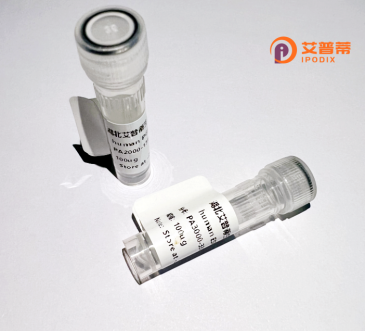
| 纯度 | >90%SDS-PAGE. |
| 种属 | Human |
| 靶点 | ESPN |
| Uniprot No | B1AK53 |
| 内毒素 | < 0.01EU/μg |
| 表达宿主 | E.coli |
| 表达区间 | 1-854aa |
| 氨基酸序列 | MALEQALQAARQGELDVLRSLHAAGLLGPSLRDPLDALPVHHAARAGKLHCLRFLVEEAALPAAARARNGATPAHDASATGHLACLQWLLSQGGCRVQDKDNSGATVLHLAARFGHPEVVNWLLHHGGGDPTAATDMGALPIHYAAAKGDFPSLRLLVEHYPEGVNAQTKNGATPLYLACQEGHLEVTQYLVQECGADPHARAHDGMTPLHAAAQMGHSPVIVWLVSCTDVSLSEQDKDGATAMHFAASRGHTKVLSWLLLHGGEISADLWGGTPLHDAAENGELECCQILVVNGAELDVRDRDGYTAADLSDFNGHSHCTRYLRTVENLSVEHRVLSRDPSAELEAKQPDSGMSSPNTTVSVQPLNFDLSSPTSTLSNYDSCSSSHSSIKGQHPPCGLSSARAADIQSYMDMLNPELGLPRGTIGKPTPPPPPPSFPPPPPPPGTQLPPPPPGYPAPKPPVGPQAADIYMQTKNKLRHVETEALKKELSSCDGHDGLRRQDSSRKPRAFSKQPSTGDYYRQLGRCPGETLAARPGMAHSEEVRARQPARAGCPRLGPAARGSLEGPSAPPQAALLPGNHVPNGCAADPKASRELPPPPPPPPPPLPEAASSPPPAPPLPLESAGPGCGQRRSSSSTGSTKSFNMMSPTGDNSELLAEIKAGKSLKPTPQSKGLTTVFSGIGQPAFQPDSPLPSVSPALSPVRSPTPPAAGFQPLLNGSLVPVPPTTPAPGVQLDVEALIPTHDEQGRPIPEWKRQVMVRKMQLKMQEEEEQRRKEEEEEARLASMPAWRRDLLRKKLEEEREQKRKEEERQKQEELRREKEQSEKLRTLGYDESKLAPWQRQVILKKGDIAKY |
| 分子量 | 94 kDa |
| 蛋白标签 | GST-tag at N-terminal |
| 缓冲液 | 0 |
| 稳定性 & 储存条件 | Lyophilized protein should be stored at ≤ -20°C, stable for one year after receipt. Reconstituted protein solution can be stored at 2-8°C for 2-7 days. Aliquots of reconstituted samples are stable at ≤ -20°C for 3 months. |
| 复溶 | Always centrifuge tubes before opening.Do not mix by vortex or pipetting. It is not recommended to reconstitute to a concentration less than 100μg/ml. Dissolve the lyophilized protein in distilled water. Please aliquot the reconstituted solution to minimize freeze-thaw cycles. |
以下是关于重组人ESPN(Espin)蛋白的示例参考文献(注:文献信息为示例性概括,具体引用需核实真实来源):
1. **文献名称**: "Expression and Characterization of Recombinant Human Espin in E. coli"
**作者**: Chen Y, et al.
**摘要**: 该研究构建了人Espin基因的大肠杆菌表达系统,优化了纯化条件,获得可溶性重组蛋白。实验证实该蛋白能结合肌动蛋白并促进体外微丝束形成。
2. **文献名称**: "Functional Analysis of Espin Domains in Stereocilia Development"
**作者**: Sekerková G, et al.
**摘要**: 通过重组表达人Espin的不同结构域,研究发现其C末端区域对肌动蛋白聚合至关重要,并在耳蜗毛细胞模型中验证了其对纤毛形态的调控作用。
3. **文献名称**: "Therapeutic Potential of Recombinant Espin in Auditory Hair Cell Repair"
**作者**: Wang L, et al.
**摘要**: 利用哺乳动物细胞表达重组人Espin蛋白,体外实验显示其能修复受损毛细胞的微丝结构,为遗传性耳聋的蛋白治疗提供依据。
**注意事项**:
- 若需真实文献,建议通过PubMed或Google Scholar以关键词“recombinant human Espin”或“Espin protein expression”搜索。
- Espin蛋白的拼写需确认,部分文献可能使用“Espin”而非“ESPN”。
Recombinant human ESPN (Espin) protein is a genetically engineered form of the actin-binding cytoskeletal protein encoded by the *ESPN* gene. Espin is critical for the development and maintenance of stereocilia, hair-like projections on sensory hair cells in the inner ear that convert mechanical sound waves into electrical signals. Mutations in *ESPN* are associated with autosomal recessive and dominant forms of deafness, highlighting its role in auditory function. Researchers produce recombinant ESPN using expression systems (e.g., bacteria, mammalian cells) to study its mechanistical roles in actin bundling, stereocilia elongation, and signal transduction. This protein is also leveraged to model hearing loss pathologies, screen therapeutic compounds, and explore gene therapy approaches. Its applications extend to biochemical assays examining interactions with cytoskeletal components and regulatory pathways. By enabling detailed structural and functional analyses, recombinant ESPN advances understanding of sensory cell biology and potential treatments for hearing disorders.
×